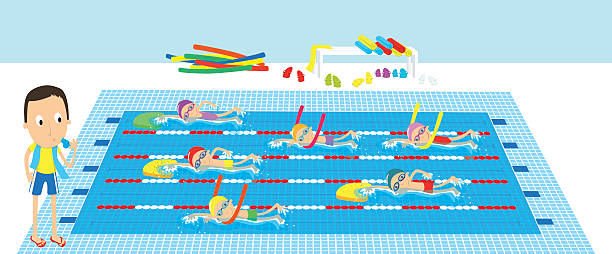Benefits of Swimming
Water activities have a positive impact on the physical and emotional well-being of children of all ages. These plus points are listed below, making a clear case for the advantages of pools for schools.
Sport and competition training: Swimming lessons in schools are a great way to introduce children to water sports at an early age. Starting early encourages excellence, allowing them to reach the performance level they need for future competitions. Quality facilities at universities are particularly important, as they allow students to alternate their studies with high-level competitions, carrying their sporting achievements into adulthood.
Healthy habits: Even if children don’t go on to compete in water sports, swimming is also incredibly good for physical and mental health, and well-being. It’s one of the few activities that you can do at any age and with any ability. It provides a full-body workout that develops good muscle structure, improves breathing capacity, cardiovascular fitness, and blood circulation, and prevents injuries and poor posture. It’s a great option particularly for children with reduced mobility, as it has a low bone articulation impact with a low chance of injury.
Social skills: It’s important for kids to learn valuable social skills. Pools are a great place for young children to play together and be entertained. For older children, it’s also a great place to train and encourage one another, as well as nurturing team spirit and some healthy competition.
Safety: Drowning is one of the most common causes of accidental death in children. All children should have the opportunity to learn how to swim and be taught how to stay safe in and around water. This is why it is so important for schools to provide the best possible swimming and water safety provision for all of their students, so they can swim safely in their leisure time.


